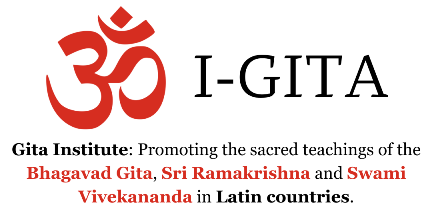Sikhism and Business

Sikhism (Sikh Dharam). Ethical Principles of the Sikhs. Articles of faith. Five K
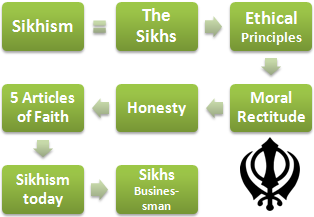
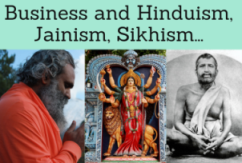
“See the brotherhood of all humanity as the highest order of Yogis” Guru Nanak
- Introduction to Sikhism (Sikh Dharam)
- Guru Nanak
- Ethical Principles of the Sikhs
- Moral Rectitude and Honesty of the Sikhs
- Articles of Faith (Five K) of Sikhism
- Relationships of Sikhism with Hinduism and Islam
- Sikh Religion Today
- Sikhs Businessman
- Case Study: Manmohan Singh (former Prime Minister of India)
- Influence of Sikhism on the Hindu Economic Area
The objectives of the subject “Sikhism, Ethics and Business” are the following:
- To know the fundamentals of Sikhism
- To understand the Ethical Principles of the Sikhs
- To learn about the influence of Sikhism on business
- To analyze prominent Sikhs Businessman
- To understand the influence of Sikhism on the Hindu Civilization

The Subject “Sikhism, Ethics and Business” belongs to the following Online Programs taught by EENI Global Business School:
Doctorate: Global Ethics, Religions, and International Business, Asian Business, World Trade.
Masters: Religions and International Business, International Business.
Bhagavad Gita Courses: Karma Yoga, Bhakti Yoga, Jnana Yoga, Dhyana Yoga, Realization of the Gita
Course: Indian Religions and Business.
Languages:  or
or  Sijismo
Sijismo  Sikhisme
Sikhisme  Siquismo.
Siquismo.
- Credits of the Subject “Indian Religions - Sikhism”: 4

- Duration: 4 weeks
- Download the syllabus: “Indian Religions” (PDF)



“There is neither Hindu nor Muslim, but the only man. So whose path
shall I follow?
I shall follow the path of God. God is neither Hindu nor Muslim, and the path that I follow is the path of God” Guru Nanak
Sikhism, Ethics and Business
Sikhism, or Sikh Dharam, is a religion founded by Guru Nanak between the XVI and XVII centuries in India, in the actual state of Punjab, when Islam dominated the region, and the clash between Islam and Hinduism was common. Sikhism is a syncretic religion with Hinduism and Islam values.
Sample - Sikhism, Ethics and Business
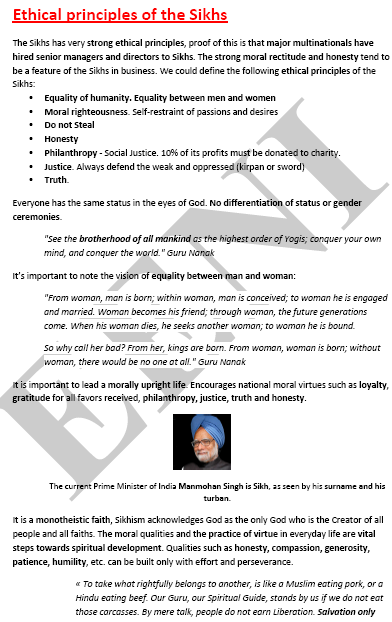
The Guru Nanak is revered today by the vast majority of the Indian Muslims and Hindus.
With more than 25 million followers worldwide, Sikhism is one of the World's great religions. While the number of followers is small compared to the other faiths such as Christianity, Islam, or Hinduism, its involvement in international business, politics, science, and culture is crucial.
Perhaps the most significant fact of the Sikh influence is that the former Prime Minister of India is Sikh because Sikhism is respected by Hindus and by Muslims.
- There are prominent Sikhs Executives and Businessman in several countries (the U.S., India, Canada, Hong Kong, Kenya, or Singapore), almost all of them dedicate significant resources to philanthropy
- Sikhs Executives are also working in banking or in financial groups like Rothschild
- The inventor of the optical fiber is Sikh
Sikhs believe in:
- Equality of Humanity
- Universal Brotherhood
- One Supreme God
- Reincarnation (like Hinduism)
- Ten Gurus, from Guru Nanak Dev to Guru Gobind Singh
Sikhs have a solid ethical principles, proof of this is that major multinationals have hired senior managers and directors to Sikhs. The high moral rectitude and honesty tend to be a feature of the Sikhs in business. The “Rehat Maryada” is the Sikh code of conduct.
We could define the following ethical principles of the Sikhs:
- Equality of humanity. Equality between men and women
- Moral righteousness. Self-restraint of passions and desires
- Do not Steal
- Honesty
- Philanthropy - Social Justice. 10% of its profits must be donated to the charity
- Justice. Always defend the weak and oppressed (kirpan or sword)
- Truthfulness
The word “guru” in the jargon Sikh means “an illuminator and a prophet.” The Ten Gurus founded Sikhism. The first, Guru Nanak (1469-1539), rejected the ritual practices of the dominant religions in South Asia and based his message strictly on the divine revelation.
The tradition tells us that Guru Nanak travelled throughout India, Persia, the Arabian Peninsula to Mecca. On these trips made speeches addressed to any believer either Muslim, Jain, Zoroastrian, Hinduism or Buddhist.
The message was simple and focused on the critique of the religious ritual, caste, or suicide of widows. His message was not proselytizing, rather the opposite, inviting “Muslims to be good and true Muslims” and the “Hindus to be good and true Hindus.”
Sample - Sikhs Businessman
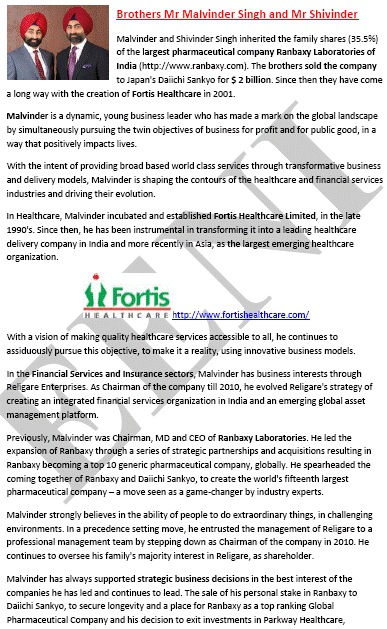
Some Sikhs Businessman.
- Ajaypal Singh Banga, President and Executive Director of MasterCard
- Sant Singh, President and Managing Director (CEO) of Hampshire Hotels & Resort
- Hardeep Singh, founder of Tulip Telecom and philanthropist
- Malvinder and Shivinder Singh founders of Fortis Healthcare
- PhD Jogishwar Singh Director of Rothschild Group
- Dharam Singh Deol (Punjab, 1935), Dharmendra, Indian actor
Khanda: Symbol of Sikhism

Sikhism
- Religion: Sikhism (Sikh Dharam)
- God: Ik Onkar
- Date: XVI and XVII centuries
- Holy City: Amritsar
- Sikh highest authority: Jathedar Singh Sahib Giani Gurbachan Singh (Amritsar, Punjab, India)
- Sacred Text: “Guru Granth Sahib” or “Sacred Wisdom Collection”
- Country of origin: India
- Followers: 25 million
- The main countries: India, also in the U.S., the UK, and Canada
(c) EENI Global Business School (1995-2024)
We do not use cookies
Top of this page




